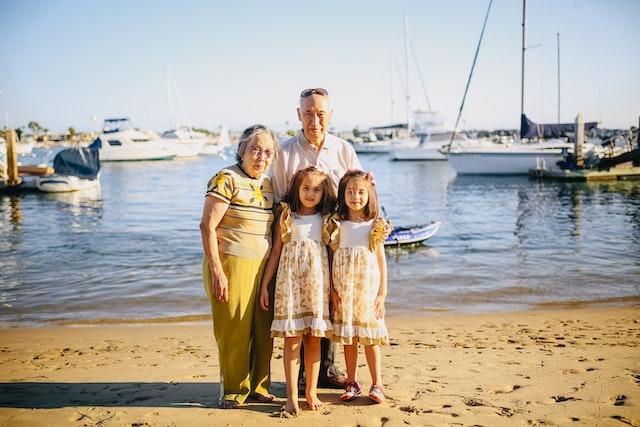Family histories have long been passed down from generation to generation, but exactly how accurate is the information you have been told about your ancestors?
Word-of-mouth stories can easily be recalled and retold incorrectly, while older images, videos and written correspondence can be lost, damaged or taken out of context.
Technology has largely solved the problem of protecting physical memorabilia, bringing the ability to digitize memories, among other advantages.
Digitizing the memories of your grandparents (or parents) is a great way to keep track of your family’s legacy. However, you could be left to piece together important milestones and events from the information at hand if they have passed away.
If you are lucky enough to have grandparents who are still alive, you should speak to them about bringing all of their memories into the 21st century. Not only will this act as a great bonding experience to bring your family legacy together, but it will help add detail to your family legacy, and in a way that's effectively "futuer-proofed".
Let's look at the top reasons why you should capture grandparents' memories while they are still alive.
 1. Get the correct information first-hand
1. Get the correct information first-hand
Trying to understand others' handwriting can be hard at the best of times, so imagine trying to decipher letters and notes you find in your grandparents' memory box once they are gone.
Rather than trying to fill in the blanks, you can ask them to take you through those letters, as well as images, to provide a more detailed description and background.
For an added element, you could also ask them how they feel about a certain event or person now, years after the moment it was captured. You could even film their reactions and make an additional video to go with their memories.
2. Get a deeper understanding of your family history
It might be too late to have first-hand accounts of all your ancestors digitized, but there’s no reason why you shouldn’t start doing it from this point forward.
Talking to your grandparents is likely the best way to find out more about your family tree, all while capturing the most meaningful memories and milestones of their own life. It would be almost impossible to avoid learning something new about your family when digitizing your grandparents’ memories.
3. Learn more about history in general
Digitizing the memories of your grandparents is going to give you fresh and intriguing insight into your own family, but it could also help you learn more about the history of the world.
With all their years on this planet, your grandparents have lived through some very interesting times and will have first-hand experience with some of the key moments that shaped the world in which we live today.
Talking to your grandfather about his military records could show you more about WWII. Or, you ight get a better understanding of second-wave feminism from your grandmother. Your family’s memories could also be shared to add context to wider historical collections.
4. Surprise your grandparents once everything is digitized
Once the memories of your grandparents have been digitized, you could package up some photos or a video as a surprise.
Use basic editing software to put together a short video, email them a slideshow, or share a Memories page with them.
A Memories page takes things one step further by acting as a vault, visual timeline and digital memory box for your now-digitized family history so it can be enjoyed by your children’s children.
5. Grandparents are going to love passing on information
Who doesn't love sharing stories from their past? We can all imagine the delight a grandparent would feel when sitting down to sift through old memories with their children and grandchildren.
Not only will they feel good reliving sentimental moments with their family, but they will find peace knowing their story will live on for generations to come.
6. Get hands-on experience with discontinued forms of media
Kids who think the iPhone 5 is vintage tech might have some fun exploring discontinued media formats such as super 8mm cameras, 8-track tapes or even wire recordings.
Maybe you could take your kids on a journey using a slide projector or fire up the old VHS recorder — don’t pretend like the nostalgia won’t be too hard resist!
7. Share it with your family
Once you digitize the memories, you have them at hand to easily share with your own family or even your grandparents’ friends.
If you store your memories in the cloud, you can give access to family members near and far — including tech-savvy grandparents — so they can view or add more whenever they please.
Some programs allow you to add tags to locate pictures using keywords, too. So, you could find your grandparents’ wedding pictures in seconds at the next family dinner.
8. Inspire others to contribute
When your family see the knowledge and satisfaction you have experienced from digitizing memories, they may well be inspired to do the same for themselves.
If your entire extended family digitized their memories, you could combine all that information to develop an extensive digital family tree. You could also inspire your friends to do the same for their parents or grandparents.
9. Enjoy knowing family memories are safe
Digitizing old photos, letters and video tapes with sentimental footage is a great way to safeguard your precious memories.
While you can still keep your physical copies, neither you or your grandparents will have to worry about floods, fire damage or deterioration ruining sentimental items.
Not only this, but you can all rest easy knowing meaningful moments from your family history are now stored safely in one place for generations to come to enjoy.

